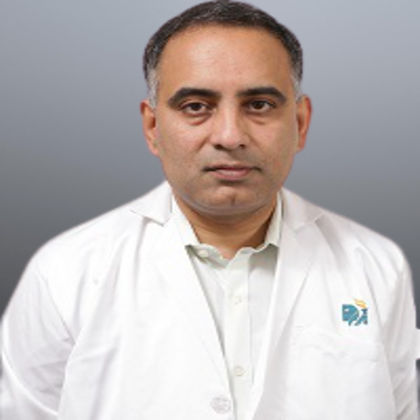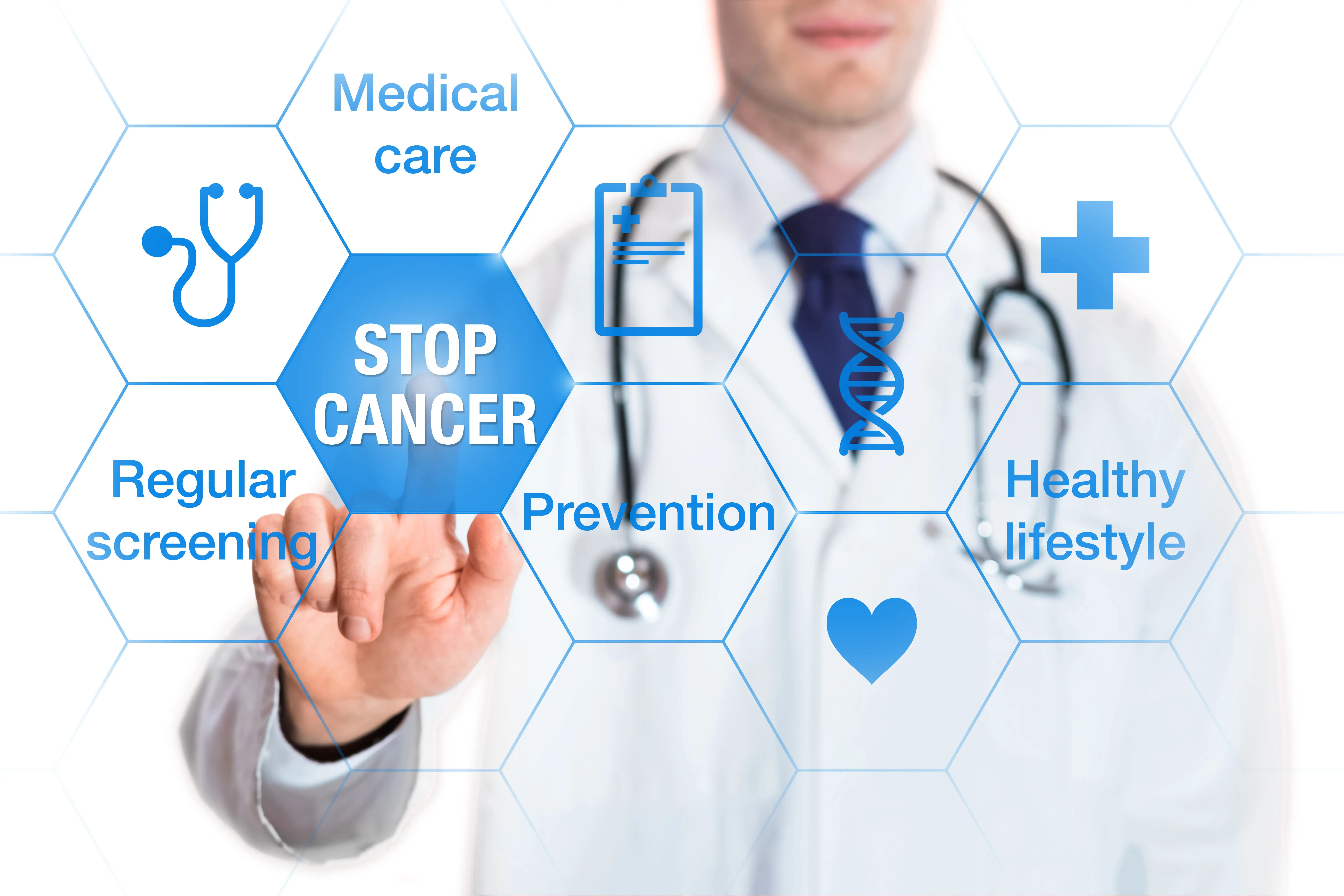Your Action Plan for Cancer Prevention A Guide for Modern Living
Practical guide to cancer prevention with actionable tips on diet, exercise, lifestyle, vaccinations, and screenings. Empower yourself to reduce risk and live healthier.


Introduction
Cancer. The word alone can feel daunting, but research shows a significant portion of cases are preventable. In a world overflowing with health information, having a clear, actionable guide to cancer prevention is more important than ever. While not all cancers can be avoided, our daily choices can greatly influence risk. This guide focuses on empowerment, breaking down the steps you can take to protect yourself. From diet to exercise and lifestyle habits, these pillars of prevention are designed to fit into modern life without feeling restrictive. Think of it as a practical blueprint for a healthier, more resilient you.
Understanding Cancer Risk: What We Can and Cannot Control
Before outlining prevention strategies, it’s important to understand cancer risk. Cancer arises from mutations in DNA within our cells. These can be inherited, but more often they develop over time due to lifestyle factors or random errors. Prevention focuses on minimising these harmful changes wherever possible.
The Role of Genetics vs. Lifestyle
Many people worry: “If cancer runs in my family, am I doomed?” Not at all. Only around 5-10% of cancers are strongly hereditary; the majority, about 90-95%, are linked to lifestyle and environmental factors. While we cannot change our genes, we can influence our risk through everyday choices.
How Carcinogens Lead to Cancer
Carcinogens are substances or exposures that can damage DNA and contribute to cancer. They can be chemical (like tobacco smoke), physical (like UV rays), or biological (like certain viruses). The body can repair some damage, but repeated exposure increases the chance of cancer developing. Reducing contact with known carcinogens is a key prevention strategy.Consult Top Medical Oncologists
Pillar 1: Fuel Your Body with Anti-Cancer Nutrition
Diet is one of the most effective tools for reducing cancer risk. Certain foods protect cells, reduce inflammation, and even support DNA repair.
A. The Power of Plant-Based Foods: Fruits, Vegetables, and Legumes
Aim for at least two-thirds of your plate to be plant-based. These foods are rich in antioxidants and phytochemicals, which help defend against cancer.
• Examples: Berries contain antioxidants; cruciferous vegetables like broccoli provide sulforaphane, which may have anti-cancer effects; beans and lentils offer fibre, linked to lower colorectal cancer risk.
• Guideline: The World Cancer Research Fund recommends at least 30 grams of dietary fibre daily.
B. Foods to Limit: Red Meat, Processed Foods, and Sugary Drinks
Processed meats are classified as carcinogenic, and high consumption of red meat and sugary drinks contributes to obesity, a known cancer risk factor.
• Tip: Avoid processed meats, limit red meat to around three portions per week, and choose water or unsweetened beverages over soda.
C. The Truth About Superfoods and Supplements
No single food can guarantee cancer prevention. A balanced, varied diet is more effective than relying on “superfoods” or high-dose supplements. Consult a doctor before starting any supplement regimen, especially if you have specific deficiencies.
Pillar 2: Physical Activity and Weight Management
Maintaining a healthy weight and staying active are crucial for cancer prevention.
A. How Exercise Fights Cancer
Exercise helps regulate hormones like oestrogen and insulin, reduces inflammation, improves immunity, and accelerates digestion, reducing the contact time of potential carcinogens with the gut lining.
B. Simple Ways to Stay Active
You don’t need intense workouts; consistency matters most. Aim for at least 150 minutes of moderate activity (brisk walking, cycling, swimming) per week. Small adjustments like taking stairs, walking meetings, or 15-minute online workouts can make a big difference. For personalised guidance, a consultation with a doctor via Apollo24|7 can help.
Pillar 3: Avoid Known Carcinogens
Minimising exposure to specific cancer-causing agents is essential.
1. Tobacco and Smoking
Tobacco is the leading preventable cause of cancer, linked to lung, throat, pancreas, bladder, and other cancers. Quitting provides immediate and long-term benefits. Avoid secondhand smoke as well.
2. Alcohol Consumption
Alcohol increases the risk of several cancers. Limiting intake is key: one drink per day for women, two for men.
3. Sun and UV Safety
Skin cancer is highly preventable. Use SPF 30+ sunscreen daily, wear protective clothing, seek shade during peak hours, and avoid tanning beds.
4. Environmental and Occupational Hazards
Be aware of radon, asbestos, and industrial chemicals. Follow workplace safety guidelines where applicable.
Pillar 4: Proactive Health and Early Detection
Prevention also means taking steps to catch cancer early.
1. Vaccinations: HPV and Hepatitis B
The HPV vaccine protects against cervical and other cancers. Hepatitis B vaccination prevents liver infection that can lead to liver cancer.
2. Regular Cancer Screenings
Screenings such as mammograms, Pap smears, colonoscopies, and low-dose CT scans help detect cancer early, when treatment is most effective. Speak to your doctor about which tests are suitable for you.
3. Knowing Your Body
Stay alert to changes such as unexplained weight loss, persistent lumps, or unusual bleeding. If symptoms persist beyond two weeks, consult a doctor online via Apollo24|7. Early attention is key.
Conclusion: Empowerment Through Prevention
Cancer prevention is about building habits that become part of daily life. Every positive choice matters, even small steps like adding an extra vegetable or taking a short walk. It’s not about perfection; every healthy habit counts. By understanding what we can control and taking proactive steps, we are not only reducing risk but also investing in a longer, healthier life. Empower yourself through informed choices, and embrace prevention as a practical, achievable part of modern living.
Consult Top Medical Oncologists
Consult Top Medical Oncologists

Dr.sanchayan Mandal
Medical Oncologist
17 Years • MBBS, DrNB( MEDICAL ONCOLOGY), DNB (RADIOTHERAPY),ECMO. PDCR. ASCO
Kolkata
Dr. Sanchayan Mandal Oncology Clinic, Kolkata

Dr Gowshikk Rajkumar
Oncologist
10 Years • MBBS, DMRT, DNB in Radiation oncology
Bengaluru
Apollo Clinic, JP nagar, Bengaluru

Dr. Sanchayan Mandal
Medical Oncologist
17 Years • MBBS, DNB Raditherapy, DrNB Medical Oncology
East Midnapore
VIVEKANANDA SEBA SADAN, East Midnapore

Dr. Gopal Kumar
Head, Neck and Thyroid Cancer Surgeon
15 Years • MBBS, MS , FARHNS ( Seoul, South Korea ), FGOLF ( MSKCC, New York )
Delhi
Apollo Hospitals Indraprastha, Delhi
(25+ Patients)

Dr. Raja T
Oncologist
20 Years • MBBS; MD; DM
Chennai
Apollo Hospitals Greams Road, Chennai
(200+ Patients)
Consult Top Medical Oncologists

Dr.sanchayan Mandal
Medical Oncologist
17 Years • MBBS, DrNB( MEDICAL ONCOLOGY), DNB (RADIOTHERAPY),ECMO. PDCR. ASCO
Kolkata
Dr. Sanchayan Mandal Oncology Clinic, Kolkata

Dr Gowshikk Rajkumar
Oncologist
10 Years • MBBS, DMRT, DNB in Radiation oncology
Bengaluru
Apollo Clinic, JP nagar, Bengaluru

Dr. Sanchayan Mandal
Medical Oncologist
17 Years • MBBS, DNB Raditherapy, DrNB Medical Oncology
East Midnapore
VIVEKANANDA SEBA SADAN, East Midnapore

Dr. Gopal Kumar
Head, Neck and Thyroid Cancer Surgeon
15 Years • MBBS, MS , FARHNS ( Seoul, South Korea ), FGOLF ( MSKCC, New York )
Delhi
Apollo Hospitals Indraprastha, Delhi
(25+ Patients)

Dr. Raja T
Oncologist
20 Years • MBBS; MD; DM
Chennai
Apollo Hospitals Greams Road, Chennai
(200+ Patients)
More articles from Cancer Screening Preventive
Frequently Asked Questions
Q1. At what age should I start thinking about cancer prevention?
It’s never too early or too late. Healthy habits in childhood help, but positive changes at any age can reduce risk.
Q2. Are there specific foods that definitely cause cancer?
Processed meats like bacon and hot dogs have the strongest evidence of increasing risk, particularly for colorectal cancer. High consumption of red and ultra-processed foods is also linked to higher risk.
Q3. How does stress contribute to cancer risk?
Stress itself hasn’t been proven to cause cancer, but chronic stress can lead to unhealthy behaviours like poor diet, smoking, or excessive drinking. Managing stress is part of a healthy lifestyle.
Q4. Is there a genetic test to see my cancer risk?
Genetic testing is usually for people with a strong family history. Consult a doctor via Apollo24|7 to discuss whether it is appropriate for you.
Q5. Can air pollution increase cancer risk?
Yes. Long-term exposure to fine particulate matter is linked to lung cancer. Supporting clean air initiatives and staying aware of air quality are sensible steps.
